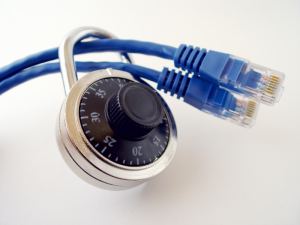The Cost of Interfaces
 Two unrelated thing happened to me yersterday that brought me to the exact same impasse: One of my favorite podcasts, Slate’s DoubleX Gabfest had a segment that I disagreed with enough that I wanted to comment. Trying to figure out where to post my feedback, the post told me “Comment on our Facebook page.” Shortly thereafter, the discussions about a new fan studies SIG started up…on Facebook. And while I was thrilled to see people putting hard work into organizing the SIG, I was excluded from the conversation.
Two unrelated thing happened to me yersterday that brought me to the exact same impasse: One of my favorite podcasts, Slate’s DoubleX Gabfest had a segment that I disagreed with enough that I wanted to comment. Trying to figure out where to post my feedback, the post told me “Comment on our Facebook page.” Shortly thereafter, the discussions about a new fan studies SIG started up…on Facebook. And while I was thrilled to see people putting hard work into organizing the SIG, I was excluded from the conversation.
I used to have a Facebook, years ago, for a very short time. In that brief time it connected me with some friends from high school, my abusive ex-boyfriend, and my college roommate. Only one of those was a pleasant surprise. So when Facebook suddenly installed new privacy features that forced me to lay open my life to the public or delete various information about myself, I took the (admittedly for me easy) step and deleted my account.
I have boycotted all things Facebook since, but it is hard and getting harder. My friend sends out invitations for a cookie swap, and I cannot see it because it is on Facebook. My favorite restaurant offers discounts, and I cannot use it because it is on Facebook. My favorite podcast asks me to vote for them in the iTunes podcast competition, and—even though I have iTunes!–I cannot vote because it is on Facebook.
What all of these things have in common, besides exhibiting how stubborn I can apparently be, is a complete invisibility and unawareness of the nature of Facebook for those who are members. We all know that Facebook has a variety of privacy settings, we all know about the dangers of nametagging, and we may know about the recent attempt to sell access to its users. Some of us may even have followed the concerns surrounding tracking users. But what I find interesting is the way few who are on Facebook are conscious of the fact that not everyone is.
I can’t call it privilege, because I clearly have the ability to get over myself and just make another account. But it shares with privilege the quiet invisibility of those without accounts, the inability to conceive of anyone not having access, and the resulting lack of consideration for those who choose to remain outside of Facebook’s walled garden. And this is where the crux of the matter is for me—and where this post turns from my whining about not getting to join in these amazingly intimate and supportive shared spaces where many academics gather to a post about the costs of the interfaces we use.
Because yesterday something more momentous happened than my inability to access Facebook: we learned that Google Reader will close down, destroying the most-used RSS feed reader and leaving those of us who relied on it desperately looking for alternatives. Now a savvy reader might ask me why I make a strong categorical stand with Facebook yet support a company at least as evil and exploitative of its users, who also happen to change their products with little input. Who doesn’t remember the nymwars of the summer of 2011? And I will have to admit that I am weak and apparently my conscience only goes as far as my Gmail account. But I try not to assume everyone is on Google, so when I collaborate on Google Docs, I have learned that not everyone is a Google puppet and have learned to create workarounds.
When the Organization of Transformative Works and the Archive of Our Own were but a glimpse in its founders’ eyes, one of the battle cries was: “I want us to own the goddamned servers.” What fans had learned the hard way was that you may be allowed to post virtually anything online, but only as long as your ISP doesn’t send you a cease and desist letter. Even more serious is the control ISPs have over the other side, our actual access to the Internet. This, of course, is a lesson that across the world has long been known by oppressed groups and citizens of oppressive regimes (and not only those!): the Internet may be free, but it is only as accessible as your ISP. In the United States, we are slowly becoming aware of that limitation: with many ISPs ascribing to the new six strikes rule, they are threatening that they can remove our Internet access at will.
Both modes of access are controlled by commercial entities (and, in many cases, by national oversight to boot), and we have little control over any of it. Facebook and its ever changing rules, Google and its ever changing products, and commercial web sites with their eager willingness to delete fanworks on the say-so of media companies with little recourse for the injured party, all of these are reminders that we live in a world where everything seems at our grasp and easily accessible—until we suddenly stand outside and get reminded that these are corporate entities who do not exist for our good but for their profit.


